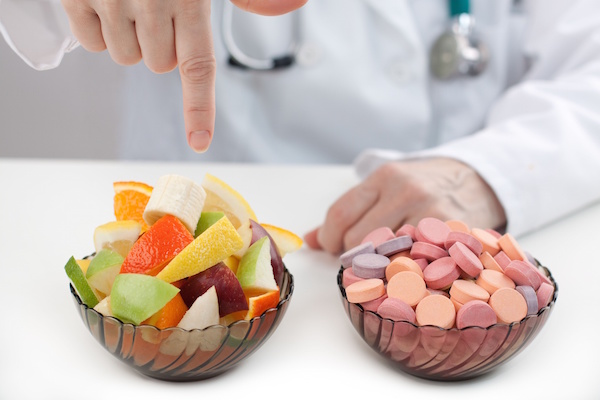
TUESDAY, May 17, 2011 (HealthDay News) — Men who drink at least six or more cups of coffee a day may be cutting their risk for advanced prostate cancer by 60 percent, new research suggests.
This is the first large study looking specifically at the relationship between coffee and metastatic prostate cancer, lead researcher Kathryn Wilson said. “This is an exciting finding, because there aren’t many modifiable risk factors for prostate cancer.”
A definite cause-and-effect link is still far from proven, experts say, and just how coffee might help thwart prostate malignancy isn’t clear.
“There are a lot of compounds in coffee that have various biological effects. It’s a major source of antioxidants and that might have anti-cancer effects,” said Wilson, a research fellow in epidemiology at the Harvard School of Public Health, Boston. “Also, coffee seems to have effects on insulin and has been associated with a lower risk of type 2 diabetes. In addition, insulin is thought to play a role in many cancers, including prostate cancer.”
Compounds in coffee also have an impact on sex hormone levels, according to the study.
But right now, the findings point only to an association between a love of “java” and a healthier prostate. More study will be needed to confirm the findings and to see if a biological explanation for the phenomenon exists, Wilson said.
The bottom line, she said: “It’s probably too early to tell someone that [he or she] should go out and start drinking coffee just because of this study.”
The report was published in the May 17 online edition of the Journal of the National Cancer Institute.
Prostate cancer is the most common cancer diagnosed and the second leading cause of cancer death in men in the United States. In the U.S. it affects one in six men during their lifetime. More than 2 million Americans and 16 million men around the world are prostate cancer survivors, the researchers say.
For the study, Wilson’s team collected data on almost 48,000 men who took part in the Health Professionals Follow-Up Study and followed them until 2008. Every four years from 1986 on these men reported on how much coffee they drank.
The researchers then calculated the risk for prostate cancer tied to the amount of coffee consumed. During the period of the study, they identified 5,035 cases of prostate cancer, of which 642 were fatal cases in which the cancer was metastatic, meaning that it had spread beyond the original site.
The Harvard team found that drinking six or more cups of coffee each day was associated with an almost 20 percent lower risk of developing prostate cancer, compared to those who did not drink coffee.
In addition, the odds of developing a more lethal or advanced prostate cancer dropped by 60 percent, compared to men who abstained from coffee — a statistically significant and “substantially lower” relative risk, according to the researchers.
Even men who drank less coffee — one to three cups a day — had a 30 percent lower risk of developing lethal prostate cancer, and reductions in risk were observed whether the men drank caffeinated or decaffeinated coffee, Wilson’s group added.
After taking into account other lifestyle factors, such as age, smoking, obesity and exercise, the decline in the odds for prostate cancer remained, they said.
“This adds to the evidence from a variety of diseases that coffee doesn’t seem to be harmful,” Wilson said. “It has been shown, pretty consistently, to be associated with lower risk of Parkinson disease, type 2 diabetes and liver cancer. This is another potential plus for coffee.”
The study was limited by self-reported data and the lack of data on coffee intake from earlier periods of the men’s lives, the researchers noted.
The finding comes on the heels of a study published last week that found that women who drank five or more cups of coffee per day saw a significant drop in their risk for a particularly aggressive form of breast tumor. The Swedish study, from a team at the Karolinska Institute in Stockholm, was published in Breast Cancer Research.
Commenting on the Harvard team’s findings, Eric Jacobs, strategic director of pharmacoepidemiology at the American Cancer Society, called it a large, well-designed study. But he stressed that, so far, it remains the only study to show such a link.
“It is premature to conclude that drinking coffee might help prevent fatal prostate cancer,” he said. “We do, however, know that both smoking and obesity are associated with higher risk of fatal prostate cancer, as well as death from many other diseases. So it is fine to enjoy a nice cup of coffee, but avoiding smoking and maintaining a healthy weight are among the surest ways to stay healthy.”
More information
For more information on prostate cancer, visit the American Cancer Society.

